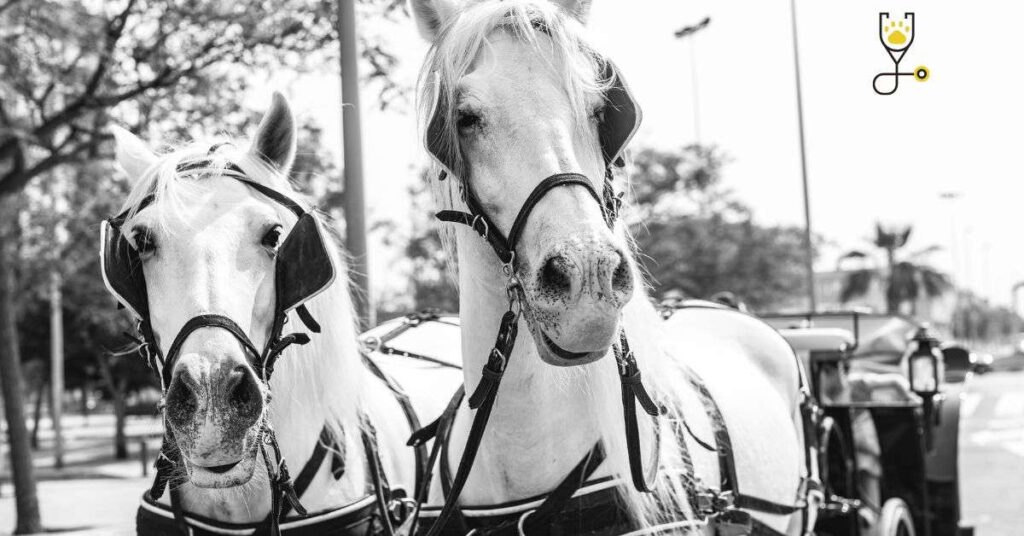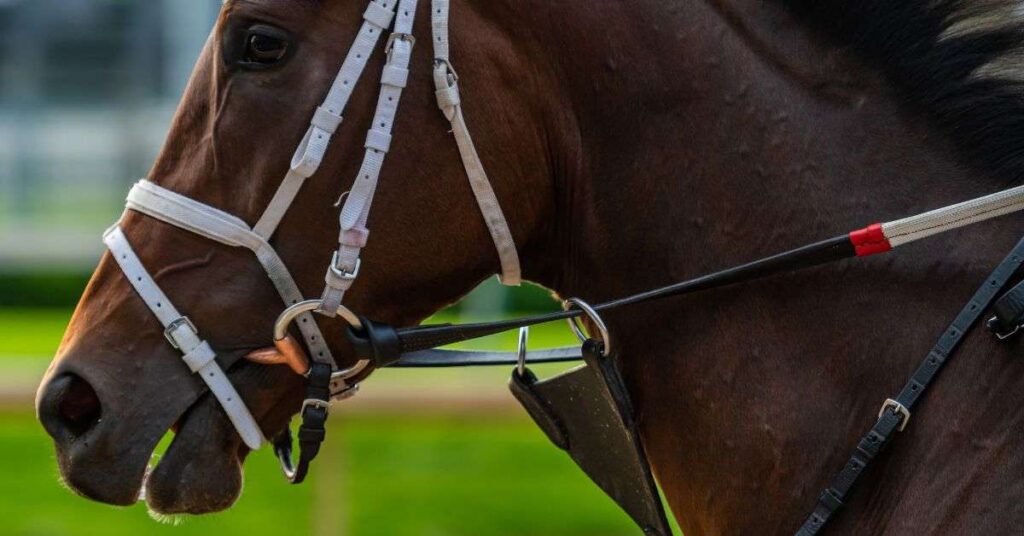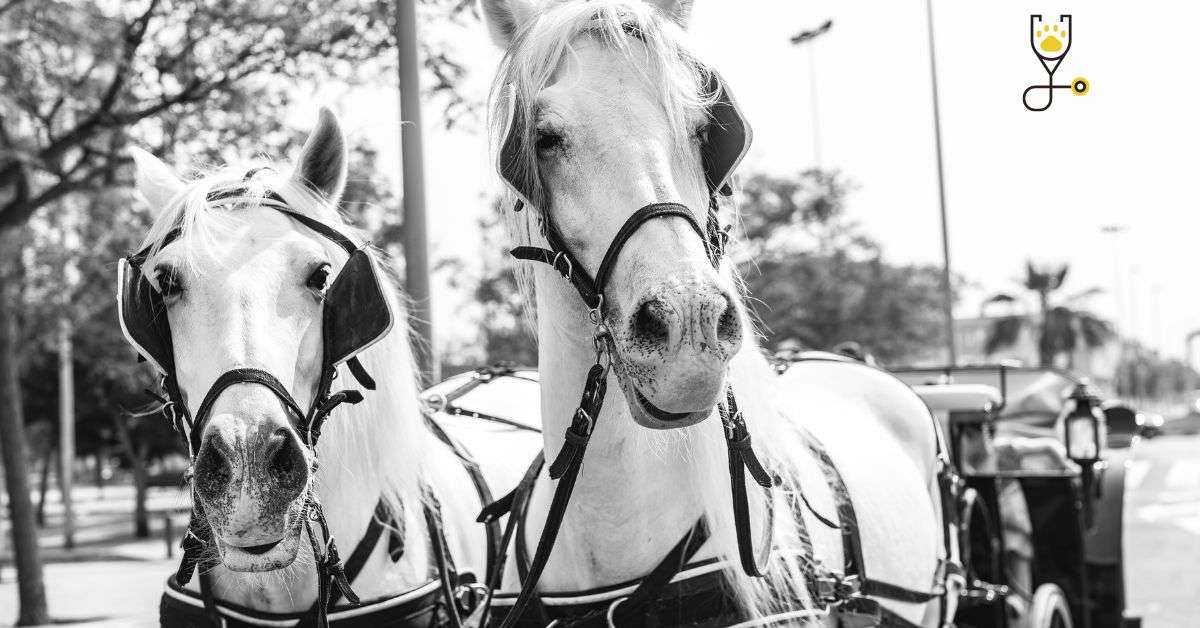There are many horses out there that are considered “hard-to-bridle.” This means that they can be challenging to get used to a bridle and may even try to buck or rear when you go to put it on. If you’re struggling with one of these horses, don’t worry – there are ways to train them and make it easier for both of you. In this post, we’ll discuss some tips for training the hard-to-bridle horse.

How to Bridle a Difficult Horse
Most horse owners have experienced the frustration of trying to bridle a horse that just doesn’t want to cooperate. The horse may throw his head all the way up and stand there, confident that you cannot reach. Or he may start backing up as soon as you approach. Either way, it can be a real nightmare. But there are some things you can do to make the process easier.
- First, try to stay calm. If you get frustrated, the horse will sense it and become even more resistant.
- Second, be patient. It may take a few tries before you finally get the bit in the horse’s mouth.
- And third, use a little bribery. A treat can go a long way toward convincing a reluctant horse to cooperate.
With a little patience and perseverance, you’ll eventually get that bridle on tight.
Learn More About Horse: The Ultimate Guide To Ownership & Care
What Makes a Horse Hard to Bridle?
There are several possible causes of this behavior. The horse may be afraid of the bridle, or he may simply not like the feeling of having something in his mouth.
Some Possible Causes:
- The horse is afraid of the bridle.
- The horse doesn’t like the feeling of having something in his mouth.
- The horse is resistant to being controlled.
- The horse is in pain (for example, from a sore mouth or teeth).
Bridling a Horse That Is Afraid of the Bridle
If your horse is afraid of the bridle, it’s important to take things slowly and make sure he doesn’t feel threatened. Start by letting him see and smell the bridle, and give him time to get used to it. Once he seems comfortable, try putting it on his head without actually putting the bit in his mouth. Let him wear it for a few minutes before taking it off.
If he still seems afraid, try putting the bridle on while someone else is holding him. This will help to keep him calm and prevent him from backing away. Once he’s wearing the bridle, give him a treat and praise him for being a good boy.

Bridling a Horse That Doesn’t Like the Feeling of Something in His Mouth
If your horse doesn’t like the feeling of something in his mouth, he may need some help getting used to the bit. Start by letting him see and smell the bit, and then put it in his mouth without actually putting the bridle on. Let him hold it there for a few seconds before taking it out.
Do this several times until he seems comfortable with the bit in his mouth. Then try putting the bridle on while someone else is holding him.
Read More: How to Approach a Horse: Basic Horsemanship
Bridling a Horse That Is Resistant to Being Controlled
If your horse is resistant to being controlled, he may need to be taught that the bridle is not a bad thing. Start by putting the bridle on while someone else is holding him. Let him wear it for a few minutes before taking it off.
Do this several times until he seems comfortable with the bridle. Then try putting it on without anyone holding him. If he tries to pull away, gently hold his head and continue trying to put the bridle on. Once he’s wearing the bridle, give him a treat and praise him for being a good boy.
Bridling a Horse That Is in Pain
If your horse is in pain, he may need to see a veterinarian. A sore mouth or teeth can make it painful for a horse to have something in his mouth. If this is the case, your vet can help to identify and treat the problem.
Read More: How to Make a Stubborn or Lazy Horse Go Forward
Bitting or Mouthing a Horse
Some people argue that biting or “mouthing” young horses is unnecessary and can even be harmful. However, when done correctly, this practice can actually help produce a horse that is more accepting of the bit and bridle. By gradually introducing the horse to the bit and allowing it to explore the sensation with its mouth, the horse can become more comfortable with the idea of wearing a bridle.
Additionally, biting can help promote a bond between horse and rider, as the horse begins to associate the rider with positive experiences. As a result, biting can be an important part of training a young horse. If done correctly, it can lead to a horse that is better behaved and more cooperative under saddle.
FAQs Regarding Bridling a Horse
1. Why is my horse hard to bridle?
There are several possible reasons for this behavior, including fear, discomfort, and resistance to being controlled.
2. How can I help my horse feel more comfortable with the bridle?
Start by letting him see and smell the bridle, and then try putting it on while someone else is holding him. Do this several times until he seems comfortable with it. You may also need to introduce the bit gradually, letting him hold it in his mouth for a few seconds at a time before taking it out.
3. Is it harmful to bite or mouth a young horse?
No, as long as it’s done correctly. Biting can actually help the horse become more comfortable with the bit and bridle and can promote a bond between horse and rider.
Read More: Horse Training Tools: Spurs
4. My horse is in pain when I try to bridle him. What should I do?
If your horse is in pain, he may need to see a veterinarian. A sore mouth or teeth can make it painful for a horse to have something in his mouth. If this is the case, your vet can help to identify and treat the problem.




